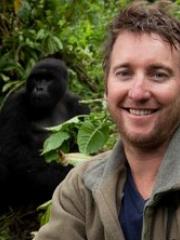Professor James Watson

Researcher biography
James is an applied conservation scientist and bioegeographer working at the interface between ecology, policy and management to improve outcomes for biodiversity. He has a particular interest in understanding how humanity influences landscape and the climate, and what this means for biodiversity and ecosystem service outcomes, and the implications of this for environmental policy setting and management.
As a Professor of Conservation Science at The University of Queensland, he leads two research groups. The Green Fire Science research group (www.greenfirescience.com) mission is to do applied research that is linked directly to the practice of large-scale conservation and the Research and Recovery of Endangered Species (https://raresgroup.com.au) mission is to focus on Australia's rarest, least studied species to try and work out their needs and work with those on-ground practioners to try and save them.
James has been passionate conservation for decades. As a Rhodes Scholar, James undertook his PhD research studying in Madagascar, trying to come up with conservation plans to save endemic bird species inhabiting the country's remaining littoral forest. Since then he has published more than 400 peer-reviewed papers, book chapters and reports on conservation related matters, ranging from assessing the impacts of climate change on species to mapping the effectiveness of protected areas on biodiversity conservation outcomes globally. He has served on the International Panel for Biodiversity and Ecosystem Services (IPBES) Data and Knowledge Task Force, and is a Research Fellow for the United Nation's Environment Program, a Senior Technical expert for the United Nations Development Program's Global Programme on Nature for Development, and was the founding chair of the International Union for Nature Conservation Climate Change Specialist Group. James sits on the scientific committees of BirdLife Australia and SUBAC. James was global president of the Society for Conservation Biology in 2015-17.
I am also an affiliated researcher at the Centre for Biodiversity and Conservation Science.



